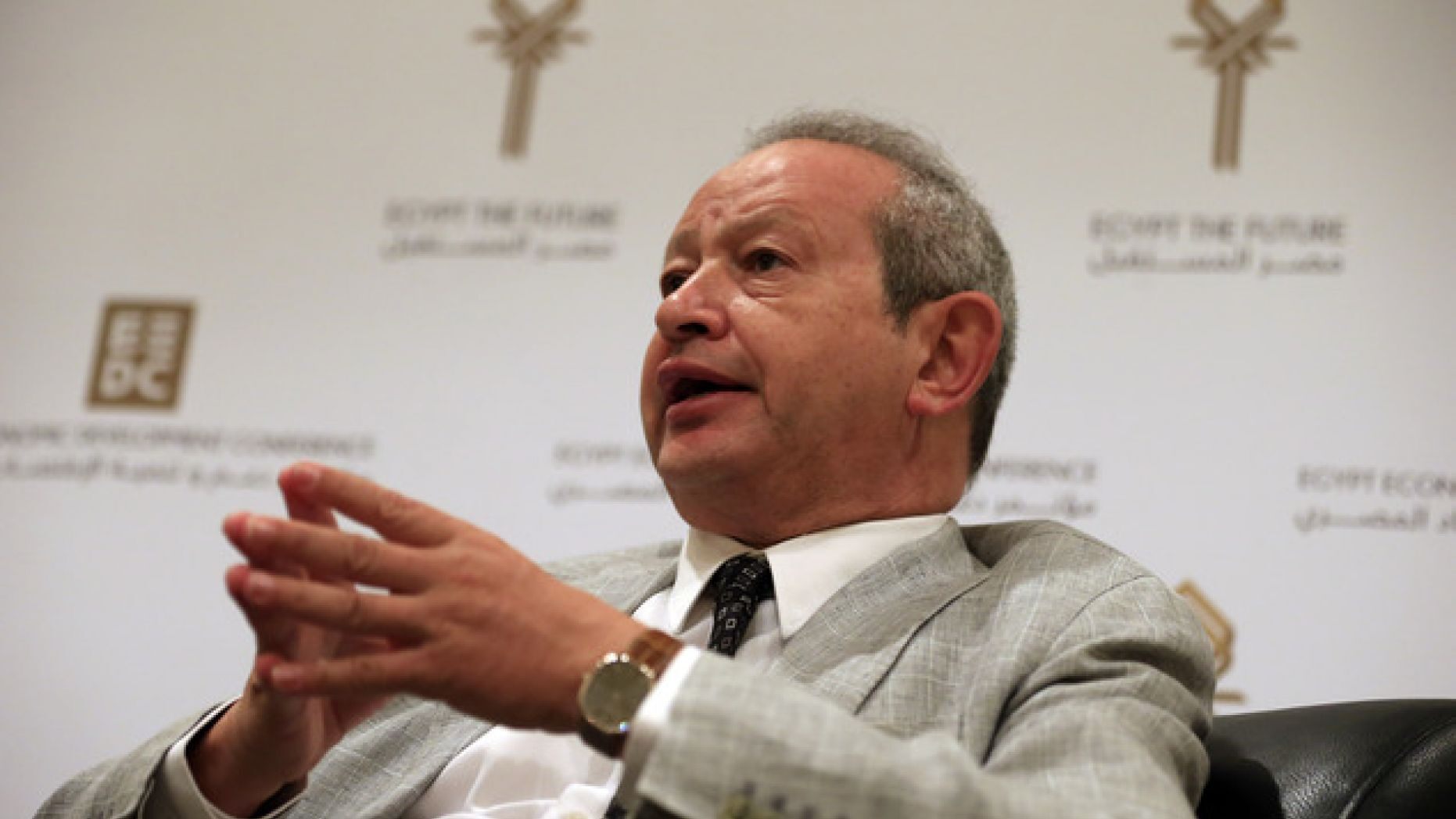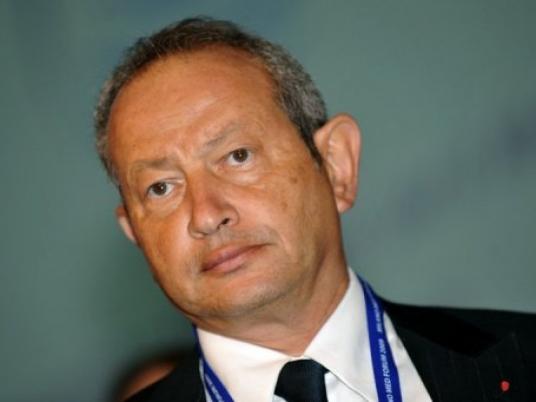It was already past noon on Sunday, and Magdy, the general coordinator of the popular committee, is still running around through the slum, knocking on the doors of community members whom he has a hard time to convince to join the march. It was planned for 11 am.
Others are writing slogans on white sheets of paper that are immediately displayed to the media by children. “Hold them up higher for the photographers,” they are told.
A big banner arrived, and on it were pictures of people in slum conditions, accompanied by the text: “They will not remain silent forever. The poor of your country have reached a boiling point, and one day they will revolt.”
The ramshackle organization feels like a reflection of the haphazard maze of shacks.
Sunday marked the first march held by the people of Ramlet Bulaq, a central Cairo informal settlement, in response to a call by from a local popular committee to protest abuses by security officers. These include arbitrary and violent arrests, nighttime raids and the failure to disclose the locations where detainees were being held. Egypt Independent documented residents’ testimonies of these violations in previous reports, in which residents also spoke of being subject to torture.
The march moved from the slum, located immediately behind the opulent Nile City Towers, to the Bulaq public prosecutor’s office. Once there, they presented residents' testimonies, which recounted the violations of security forces by named police officers, whose prosecution they were demanding.
Furthermore, they demanded a 20 June governorate decree confiscating their land be rescinded, and an end to “oppression we will no longer accept,” as the popular committee statement read.
Hammad Arabi, the head of the popular committee, thinks the arrests are connected to attempts by the Cairo Governorate and the owners of Nile City Investments to confiscate the lucrative land the slum sits on. Telecommunications tycoon Naguib Sawiris and wealthy Saudi investors belonging to the Shobokshi family are the main owners of Nile City.
“Arbitrary arrest is part of a strategy to terrorize us into leaving, so that they can build five-star hotels and make millions,” he said. “But we won’t accept this, that’s why we are breaking out and applying pressure through the media and peaceful protest,” he adds.
Speaking to Ramlet’s residents, one gets the impression that the security forces have not left a single family of the 350 in the community untouched. In August, masked special forces performed nighttime raids, kicking in doors and violently arresting mainly young men. This instilled a deep sense of fear in the community, deterring many from joining the protest.
The wave of arrests came after slum residents clashed with security forces at the Nile City Towers on 2 August. The clashes broke out after a tourism police officer shot dead resident Amr al-Bunni, who went to the Fairmont Hotel to demand pay for work as a temporary security guard that had been denied him.
Shaimaa Atef, a researcher at the Egyptian Initiative for Personal Rights, says these arrests were arbitrary: “The police picked up a list of names, but there is no evidence to suggest that any of the 24 currently detained had anything to do with the clashes.” Atef further describes the conditions in prison as “bad, like any other Egyptian prison,” and cites the example of Walid Hassan Mohamed, a detainee who has been denied treatment for an eye injury.
This did not, however, deter more than one hundred community members, among them young children, elderly men and women and members of Ramlet’s popular committee, from marching for the release of their relatives. They were accompanied by activists from the Socialist Popular Alliance Party and a herd of journalists, whom they guided through the slum “to show the conditions we are living in here,” as one member of the popular committee put it.
Ramlet Bulaq’s residents live in run-down shacks and lack basic facilities, such as running water. They make for an extreme juxtaposition with the gleaming Nile City Towers, home to wealthy companies, a nightclub and the Fairmont Hotel, which has a swimming pool on its roof.
The group of protesters gathered right before the exit of the slum, hesitating briefly, as if nervous about whether or not the streets would recognize their ordeal. After a short pause, the residents walked out, past the four Central Security Forces trucks lined up there since the beginning of August and on to the Nile Corniche.
They claimed a physical — and loud — presence in the heart of Cairo, as they marched past affluent hotels and banks stacked up along the banks of the Nile.
“We live like animals, and we are treated like that because there is not a single official that listens to us. Today I finally have the feeling that we exist,” says 40-year-old Fatma Mohamed Ahmed, who was leading slogans, chanting “The voice of the poor is rising,” and “Release our children from your cells.”
Ahmed, born and raised in Ramlet, has not seen her son since the clashes, who fled out of fear of being arrested. The latest arrest took place just one day before the march.
When the protesters walked past the Nile City Towers, they chanted with an almost zealous passion, targeting Sawiris and Shobokshi whom they hold accountable for much of their grievances. “We will not leave, we will not sell, we will die on our land,” they chanted as they gestured towards the gleaming towers.
In the meantime, Magdy, who was holding a picture of his brother Walid, was seeing to it that curious passers-by were informed of the reasons for this protest. “We are not thugs, we are people whose rights are being violated. Our rights are being violated because we are poor, but the poor are breaking out now and there is no turning back,” he told them.




